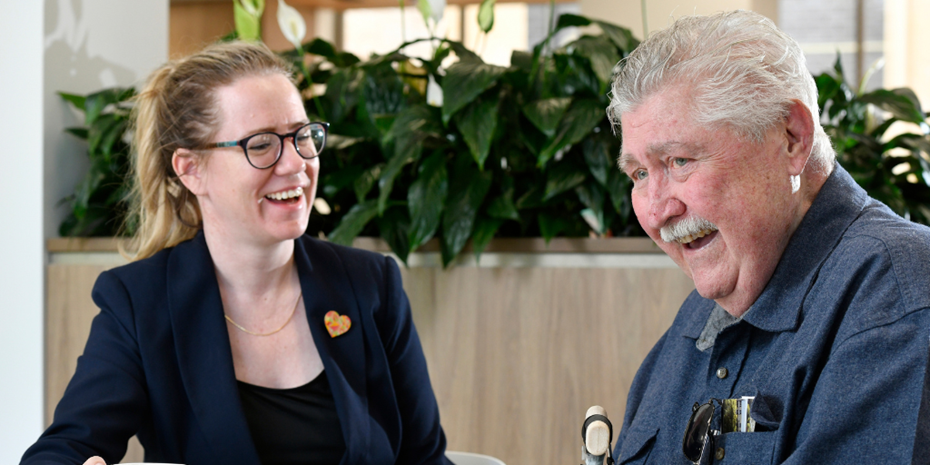
It’s easy to think depression and anxiety are problems of the young, but statistics show that at least 20 per cent of Australians over 65 will experience one or the other. It is often not well recognised and can manifest differently.
The problem is less visible in seniors, in part, because they are more likely to accept it as a natural sign of getting older, says the General Manager of Brightwater at Home, Jenni Gamble.
“It's very easy for older people to think that sadness, lack of sleep, loss of appetite and mood changes are a ‘normal’ part of getting older,” she adds. “But they are not a normal part of ageing and could be indicators of depression.”
Jenni has been leading a project to address the issue, after she was awarded Brightwater’s Don Hutchison Scholarship to investigate how to recognise, manage and prevent depression.
She and her team have seen first-hand that depression and anxiety could be significant issues for their at-home clients.
“I often hear about loneliness which many of our clients experience, and with loneliness come a greater risk of depression,” she says. “I am extremely grateful for the opportunity to explore this further through the scholarship.”
As a result, Brightwater at Home now has the tools and systems in place to help identify when clients may need support, and to help them do something about it.
Mental Health Screening Program introduced
From the beginning of this year, mental health screening will be integrated into the onboarding process for new clients and become part of the regular care plan review for existing clients.
Brightwater at Home’s Mental Health Clinician Jasmine Trethewey (pictured above) says it is about flagging potential concerns and creating an opportunity to engage and support clients on their terms.
“Through this, we can advocate further action, including visiting the GP,” she says. “Or we might be offering something like social support to improve connection within the community and ideas around decreasing loneliness.”
In addition, Brightwater’s Community Support Workers are being educated about what they can do if a client begins to talk about their mental health, or if they notice changes that could signal something may be not right.
“Community Support Workers spend a lot of time with our clients and are in a good position to have conversations around mental health, even just gently asking: ‘is everything okay?’ And then being able to speak with the client’s support coordinator and highlight the shared concern,” Jasmine explains.
Jasmine says the goal is to provide a safe environment for clients to open up about how they are feeling and provide support on the client’s terms. At that stage, Brightwater at Home will now have the resources and referral pathways to provide assistance.
“Identifying a mental health change is one part of the story,” she adds. “Actually engaging with meaningful care is an equal part of the story.”
Getting help at home
The new screening program represents an important step in addressing the mental health of older Australians, which was highlighted as a priority by the Royal Commission into Aged Care.
An increasing number of people are expected to stay in their own home for longer, and this will mean more services will be needed to support them, says Jasmine.
“There are now a number of different health disciplines visiting clients in their homes,” she explains. “Adding mental health professionals into that is a really important part. I want the clients to know that we're here for all of their care, and this includes their mental health.”
Start of a brighter future
Brightwater at Home’s Mental Health Screening Program will begin rolling out in early 2023. It could be the start of a brighter future for many at-home clients, says program manager Jenni Gamble.
“For me, measuring the success of the program would include someone waking up in the morning thinking about what the day is going to bring,” she says.
“It could be anything from being out in the garden, making a phone call, going to church, being a volunteer. It’s about somebody who can see that even though they're at a different stage, they are still enjoying their life.”


